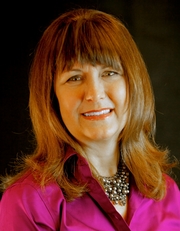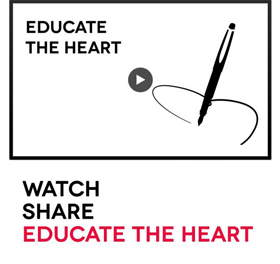Heart-Mind 2015 In Profile: Kimberly Schonert-Reichl

 Kimberly Schonert-Reichl is an award-winning teacher, researcher, and professor at the University of British Columbia. She was recently named director of UBC’s Human Early Learning Partnership, which has been a long-time collaborator with the Dalai Lama Center, most notably in the development of the Heart-Mind Index.This October 2-3 in Vancouver, Kimberly will be making her third appearance at the Dalai Lama Center's annual Heart-Mind Conference.
Kimberly Schonert-Reichl is an award-winning teacher, researcher, and professor at the University of British Columbia. She was recently named director of UBC’s Human Early Learning Partnership, which has been a long-time collaborator with the Dalai Lama Center, most notably in the development of the Heart-Mind Index.This October 2-3 in Vancouver, Kimberly will be making her third appearance at the Dalai Lama Center's annual Heart-Mind Conference.
Kimberly’s research has focused on social and emotional learning and the development of children. In her Heart-Mind 2015 presentation "Human Connection: What is it and why is it important?", she will set the stage by discussing recent research on human connection and its role in the development of children’s positive human qualities – such as empathy, compassion, altruism, and resiliency.
“We still do not know the full extent to which our children are affected by the rapid advances in technology and the digital world,” says Kimberly.
From birth our species are wired for human connection. Yet, as Kimberly points out, research aimed at understanding the ways in which children’s social and emotional development – including empathy – might be fostered or impeded by these rapid changes is still emerging.
“I am looking forward to learning more through many wonderful discussions about the research, but as a mother of two teenage boys, I am also interested in learning practical strategies that I can use to promote my sons' well-being in today’s digital world!”
Kimberly offers her tips for developing your children’s social and emotional learning:
1. Create caring contexts
Children and youth need to feel loved, cared for, and supported. Try to remember these two important quotes to guide you, as both illustrate the importance of human connection between adults and children:
"Human beings of all ages are happiest and able to deploy their talents to best advantage when they experience trusted others as standing behind them."
– John Bowlby (a leading expert on attachment theory)
“Every child requires someone in his or her life who is absolutely crazy about them.”
– Urie Bronfenbrenner (architect of the ecological systems approach to human development)
2. Provide youth with opportunities to foster SEL
Certain opportunities and specific skills will foster their social and emotional competence, resilience, happiness, and well-being. What we know from research is that social and emotional skills are malleable – they can be taught!
3. Take the time for your own self-care
Be sure to develop your own happiness and well-being! We now know from an abundance of research that teachers’ and parents’ own well-being influences their students’/children’s social and emotional learning and well-being. Take for example the notion of “stress contagion.” Yes, your own stress can have a ripple effect and be “caught” by your students and children!
Want to learn more and receive expert advice from Kimberly? She will be presenting at Heart-Mind 2015: Human Connection in a Digital World! Click here to register!
Interview and Profile: Jordan Lee







Comments
Post new comment